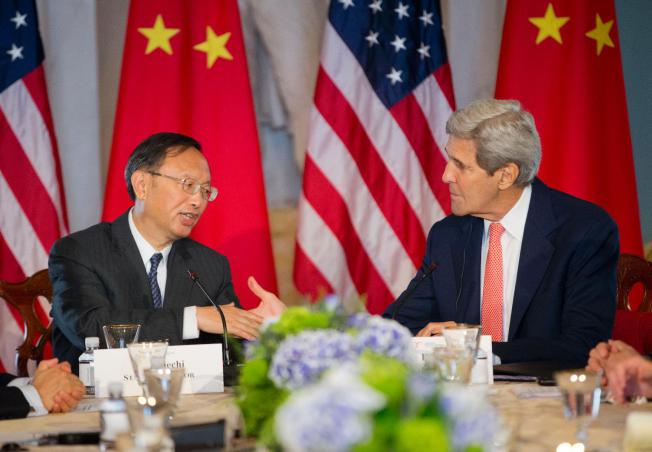US and Chinese negotiators bridged some differences over economic policy in annual bilateral talks Wednesday, even as the two countries continue to wrestle with major strategic disagreements.
 US and Chinese negotiators bridged some differences over economic policy in annual bilateral talks Wednesday, even as the two countries continue to wrestle with major strategic disagreements.
US and Chinese negotiators bridged some differences over economic policy in annual bilateral talks Wednesday, even as the two countries continue to wrestle with major strategic disagreements.
Both sides suggested they closed gaps in talks on a bilateral investment treaty (BIT) following the talks.
US Treasury Secretary Jacob Lew said at the end of the two-day US-China Strategic and Economic Dialogue that China had agreed to hold off on interventions in the foreign exchange markets to manage the yuan's value except in situations of "disorderly market conditions."
China also agreed "to actively consider" additional steps to move the yuan, which the US has long criticized is forcefully kept undervalued, to a market-based exchange rate.
Lew also welcomed China's commitment to begin publishing economic data to meet a key IMF standard by the end of 2015.
"It is in China's own interest to adopt the transparency standards of major reserve currencies."
Earlier this year Beijing asked the IMF to consider including the yuan, also called the renminbi, in the basket on which the SDR (Special Drawing Rights) is based. That would constitute a major recognition of the yuan as one of the 10 most important currencies in the world.
Chinese Vice Premier Wang Yang confirmed that Washington had shown support for the yuan's consideration by the IMF, a decision likely to take place only next year.
Wang also said the two sides had placed high priority on the BIT (Bilateral Investment Treaty), as they weigh each others' proposed "negative list," a register of business sectors they want to keep protected from foreign investment.
The two sides committed to "improve the negative list offer with a view to reaching a mutually beneficial and high-standard treaty," he told reporters after the meeting.